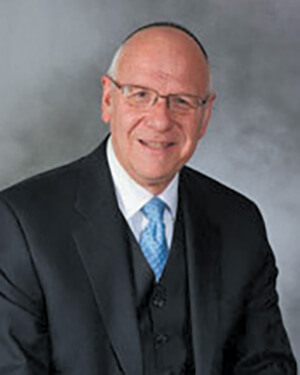Parshiyot Acharei Mot-Kedoshim
The Book of Vayikra revolves around “Mikdash,” i.e., both the eventual Beit Hamikdash and the already completed Mishkan, beginning with the laws of korbanot that would be offered therein and continuing (in Parshiyot Shemini, Tazria and Metzora) with the laws of tumah and tahara, those who may or may not enter the holy environs of the Mikdash. This week’s parshiyot of Acharei Mot-Kedoshim continues that theme by detailing the laws of sanctity and holiness of both the Mikdash and the nation itself. Although half of the first parsha deals with the rites to be followed by the kohen gadol on Yom Kippur, the overriding theme of both parshiyot is expressed in its closing words of the first parsha, that is, not to defile the land with moral turpitude, which leads us directly into the opening words of the second parsha, “Kedoshim tihiyu, you shall be holy.” Rashi throughout his commentary explains the root idea of “kedusha” as separation. Hashem demands that we be separate, unique, “holier” (no, not intrinsically better) than the other nations. It is the same demand He made of us when we stood at Har Sinai and told Moshe Rabbeinu: “V’atem tihiyu li mamlechet kohanim v’goy kadosh,” that we would be a holy nation dedicated to the service of God. And yet, our haftarah opens with words that seem to express precisely the opposite view: “Hahlo chiv’nei chushiyim atem li,” “Are you not just like the Cushite nation to me?” supporting that claim by explaining that God had taken other nations out of foreign lands just as He had done for Israel!
The prophet Amos, author of this week’s haftarah, begins his book with prophecies that describe the sins of Israel’s neighbors and the resultant punishments that would follow. He then goes on to include both Israel and Judea among those sinful nations, detailing their sins and resultant punishments as well. The fact that Israel is treated no differently than other nations and, therefore, would be punished for their sins as well, is a basic theme of the Book of Amos and it is a theme found in the prophecies of other nevi’im as well (Hoshe’a, Yirmiyahu, Yechezkel). Indeed, our haftarah this week dedicates one-third of its verses to describing the terrible punishments that would befall the sinful nation of Israel!
So what then is the connection of the harsh words of Amos to the message of our Torah reading? Why should we read this haftarah on this Shabbat?
In truth, this selection is especially pertinent to the theme of kedusha, for it expresses a most important idea: The “specialness” of Israel is predicated upon her retaining that status of sanctity, something that can be done only through fealty to Hashem and His mitzvot. When Israel shrugs off her commitment to Hashem, when she ignores her miraculous past and, thereby, denies her glorious future, she is no different than any other nation. In fact, she is worse than they are. Amos expresses this idea so powerfully in the third chapter when he states: “Rak etchem yada’ti…al ken efkod aleichem et kol avonoteichem,” it is because God revealed Himself to us, because we have witnessed His miracles over and over again, that He expects fidelity and faithfulness from us more than He does from other peoples, and, therefore, the retention of a higher level of morality and sanctity.
Kedusha is not a gift bestowed upon us or an inborn quality that raises us above any other nation. Kedusha is an obligation and goal that we must strive to reach. It is Hashem’s challenge to us that we are to fulfill.
We who have been blessed to live in a time of miracles, from seeing the rising sun of the geula to watching the flag of the Jewish state resting on the moon, must have a greater awareness of Hashem’s love for us and a greater sense of His presence. It is for this reason that God rightfully has a greater expectation from us to live up to His challenge and be recognized as that holy nation He desires us to be.
Rabbi Neil Winkler is the rabbi emeritus of the Young Israel Fort Lee and now lives in Israel.













